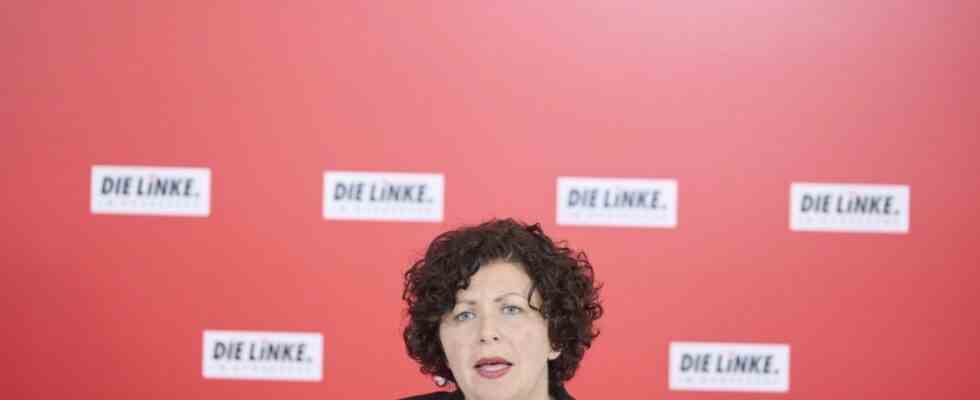It would certainly be an exaggeration to say that everyone in the left faction likes each other again. But at their parliamentary group meeting on Tuesday afternoon, the left averted a further escalation of their self-mutilation process. for now. After three hours of debate, parliamentary group leader Dietmar Bartsch announced: “We tried to get out of this meeting together. We managed that.” The parliamentary secretary Jan Korte was able to report: “There are no injuries”. Something like that has news value on the left these days.
At the end of a “very extensive” (Bartsch), but “remarkably reasonable” debate (Korte), there was even a joint resolution that said: “For the members of the Die Linke parliamentary group, the party program, the election program and the resolutions of the party conferences form the basis the basis of their work. The constitutionally guaranteed free exercise of mandates remains guaranteed.”
That sounds like a string of obvious things. But it only sounds like it. Because who in this parliamentary group is allowed to speak on which topic with which theses in the plenum is a question that has recently led the left to the brink of its split.
The trigger was a speech by MP Sahra Wagenknecht on September 8th. In it she described the traffic light coalition as “the stupidest government in Europe” and then said: “The biggest problem is your grandiose idea of starting an unprecedented economic war against our most important energy supplier.” What was obviously meant was an economic war against Russia, which the federal government is said to have started.
Wagenknecht was connected via video on Tuesday
Wagenknecht’s appearance had led to violent upheaval and several prominent party resignations. Since then, the parliamentary group has been openly discussing its split. For those on the left, it’s only a matter of time before Wagenknecht and her closest comrades-in-arms leave.
Wagenknecht himself was not present at the parliamentary group meeting on Tuesday, but was connected via video. According to participants, she is said to have said in her two-minute statement that she would of course adhere to the party’s decisions in her statements.
A motion by eight MPs, which would have amounted to a reprimand by Wagenknecht, was withdrawn on Tuesday. Instead, at the suggestion of the parliamentary group leadership, the MPs passed a compromise agreement with a large majority: On the one hand, they now want to stick to the party’s decisions a little more, but on the other hand, the mandate can continue to be exercised freely.
All parties to the dispute can be a little satisfied with that, but nobody really either. The signers of the original application, which included the former party leader Bernd Riexinger and MP Caren Lay, walked away rather crippled. Group leader Bartsch strengthened them afterwards: “This kind of pomposity has to stop.”
Was the leadership of the faction blackmailed?
In addition to Wagenknecht, Bartsch and his co-chairman Amira Mohamed Ali are increasingly becoming the focus of internal party criticism. The deputy party leader Katina Schubert said the Süddeutsche Zeitung: “My expectations of the parliamentary group are not high at all, I just want them to stop torpedoing the hard work that is being built up.” The group leaders must ensure that what has been decided by a majority in the party is also expressed in public statements on behalf of the group. “The leadership of the parliamentary group must start doing politics and not just defend their own skin,” said Schubert.
In a joint statement by nine state chairmen of the left, Bartsch and Mohamed Ali received the dissatisfaction again in writing on Tuesday. “We are resolutely opposed to the privatization of mandates, regardless of the political level. We will not allow ourselves to be blackmailed either,” the letter to the parliamentary group leader said. Nine state chairmen, including those from Bartsch’s home association Mecklenburg-Western Pomerania, are apparently of the opinion that Wagenknecht successfully blackmailed the parliamentary group leadership in order to make it onto the speech list in the budget week. That still holds plenty of fuel for the coming days.
“We are a complicated party, we have always been,” said Mohamed Ali: “If I had a formula for how to ensure that from now on only things happen that let us shine in unity, I would have it already done.” In any case, until this formula is found, things will not get boring on the left.

